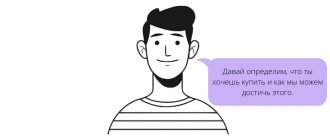Cognitive development of preschool children during developmental games
Mental cognitive processes include: perception, attention, imagination, memory, thinking and speech.
Perception is a holistic reflection of an external material object that directly affects the senses.
Attention is a prerequisite for any activity. Attention can be voluntary or involuntary. With voluntary attention, a person sets a goal: to pay attention to a certain object through volitional efforts.
Imagination is a mental process that consists of creating images and situations that have never been perceived.
Memory is the imprinting, preservation, recognition and reproduction of what a person previously perceived, experienced, thought, did. This is the basis of mental life, the basis of our consciousness. The accumulation of experience, its preservation and use is the result of the activity of memory.
Thinking is a generalized, indirect, abstract reflection of the external world and its laws. The operational components of thinking are mental operations - analysis, synthesis, comparison, abstraction, generalization, classification.
There are three types of thinking: visual-effective (learned through the manipulation of objects); visual-figurative (cognized with the help of representations of objects, phenomena); verbal-logical (cognized with the help of concepts, words, reasoning). Of the three types of thinking: verbal-logical, visual-figurative and visual-effective, the last two types are sufficiently developed and predominate in preschool children. As for the first - verbal-logical, this type of thinking in preschool age begins to develop intensively by the age of 6-7 years.
Speech is the process of a person’s practical use of language for the purpose of communicating with other people. Language is a means of communication between people.
Cognitive development involves the development of children's interests, curiosity and cognitive motivation; formation of cognitive actions, formation of consciousness; development of imagination and creative activity; the formation of primary ideas about oneself, other people, objects of the surrounding world, about the properties and relationships of objects of the surrounding world (shape, color, size, material, sound, rhythm, tempo, quantity, number, part and whole, space and time, movement and rest , causes and consequences, etc.), about the small homeland and Fatherland, ideas about the socio-cultural values of our people, about domestic traditions and holidays, about the features of nature, the diversity of countries and peoples of the world.
The main feature of educational games: these are educational games. They contribute to the development of cognitive activity, intellectual operations, which are the basis of learning. But what attracts a child to a game is not the educational task inherent in it, but the opportunity to be active, perform a game action, achieve a result, and win. However, if a participant in the game does not master the knowledge and mental operations that are determined by the learning task, he will not be able to successfully perform game actions. The ability to teach young children through active activities that are interesting to them is a distinctive feature of educational games.
An educational game helps to demonstrate cognitive activity in independent activities, expand one’s own cognitive interests and needs, teaches one to master various methods of safe behavior in the modern information environment, develops the child’s integrative qualities, educates, socializes, entertains, and gives rest.
Thus, the knowledge acquired by the child in classes is consolidated in joint activities, after which it passes into independent and, after that, into everyday activities.
When organizing work to develop cognitive activity, it is advisable to use not only specially made games, but also ordinary objects, so that the child sees that the real world does not exist on its own. To work with children to identify the properties and relationships of objects, use not only classes, but also walks and productive joint activities; for individual work - routine moments (dressing and undressing situations, hygiene procedures, preparation for lunch, bedtime).
Verbal games help develop children's speech: by replenishing and activating the vocabulary, forming correct sound pronunciation, developing coherent speech, the ability to correctly express their thoughts, compose independent stories about objects, phenomena in nature and social life, developing retelling skills. Games such as “Name in one word”, “Name three objects” require children to actively use generic and specific concepts. Finding antonyms, synonyms, words that sound similar is the main task of word games.
Development of children's cognitive activity through educational games:
‒ Thinking operations develop: analysis, synthesis, comparison, generalization, classification;
- The ability to imagine develops;
- Show interest in classes;
- The speech activity of children in various types of activities increases.
Games for classes must be selected taking into account the cognitive material that the children have studied. For mathematics classes, games with mathematical content that require mental effort: puzzle games; joke games; games with interesting questions.
In classes on speech development, games: to develop the ability to “peer” into an object, phenomenon; on the ability to make inferences and assumptions.
In classes to familiarize yourself with the surrounding world, games: to consolidate knowledge about seasonal phenomena, flora and fauna; promoting the development of curiosity and observation.
During the games themselves, depending on the age of the children, it is necessary to ask questions, give a sample of actions, a sample of a statement, remind the rules, referring to the experience of the children, take on the role of a leader or observe the progress of the game.
In the process of gaming activities with children, try to arouse their interest in games, create in them a state of enthusiasm, mental tension, using entertaining problem situations that require resolution.
To organize joint and independent activities of children, it is necessary to create a subject-development environment in the group - a special developmental area with a large range of educational games, taking into account safety, aesthetics, clarity, and accessibility.
Educational games contribute to:
‒ development of cognitive and mental abilities: acquiring new knowledge, generalizing and consolidating it; expanding their understanding of objects and natural phenomena, plants, animals; development of memory, attention, observation; developing the ability to express one’s judgments and draw conclusions;
‒ development of children’s speech: replenishment and activation of vocabulary;
‒ social and moral development of a preschool child: in such a game, knowledge of the relationships between children, adults, objects of living and inanimate nature occurs, in it the child shows a sensitive attitude towards peers, learns to be fair, to give in if necessary, learns to sympathize, etc. .
The structure of an educational game is formed by basic and additional components. The main components include: didactic task, game actions, game rules, result and didactic material. Additional components: plot and role.
Conducting educational games includes:
- Familiarizing children with the content of the game, using didactic material in it (showing objects, pictures, a short conversation, during which the children’s knowledge and ideas are clarified).
- Explanation of the course and rules of the game, while strictly following these rules.
- Show game actions.
- Determining the role of an adult in the game, his participation as a player, fan or referee (the teacher directs the actions of the players with advice, questions, reminders).
- Summing up the results of the game is a crucial moment in its management.
Based on the results of the game, one can judge its effectiveness and whether it will be used by children in independent play activities. Analysis of the game allows us to identify individual abilities in the behavior and character of children. This means properly organizing individual work with them.
Education in the form of a didactic game is based on the child’s desire to enter an imaginary situation and act according to its laws, that is, it corresponds to the age characteristics of a preschooler.
Types of educational games:
‒ Games with objects (toys).
‒ Printed board games.
‒ Word games.
Games with objects are based on children’s direct perception and correspond to the child’s desire to act with objects and thus become familiar with them. In games with objects, children learn to compare, establish similarities and differences between objects. The value of these games is that with their help children become familiar with the properties of objects, size, and color. When introducing children to nature in such games, I use natural materials (plant seeds, leaves, pebbles, various flowers, pine cones, twigs, vegetables, fruits, etc.) - which arouses keen interest and an active desire in children to play. Examples of such games: “Describe this object”, “What is this?”, “What first, what next”, etc.
Printed board games are an interesting activity for children to get acquainted with the world around them, the world of animals and plants, and phenomena of living and inanimate nature. They are varied in type: “lotto”, “dominoes”, “paired pictures”. With the help of board and printed games, you can successfully develop speech skills, mathematical abilities, logic, attention, learn to model life patterns and make decisions, and develop self-control skills.
Word games are an effective method of fostering independent thinking and speech development in children. They are built on the words and actions of the players. Children independently solve various mental problems: describe objects, highlighting their characteristic features, guess them from the description, find similarities and differences between these objects and natural phenomena. During the games, children clarify, consolidate, and expand their ideas about natural objects and its seasonal changes.
Developmental game in experimental activities - contributes to the formation of children's cognitive interest in the environment, develops basic mental processes and observation.
Literature:
- Ananyev, B. G. Cognitive needs and interests / B. G. Ananyev / Uch. zap. Leningrad State University, No. 265; issue 16, Psychology. - L., 1959. - P. 41–60.
- Averin V. A. Psychology of children and adolescents. - St. Petersburg, 1998.
- Bondarenko A.K. Didactic games in kindergarten / A.K. Bondarenko.-M., 1991
- Gamezo M.V., Gerasimova V.S., Gorelova G.G., Orlova L.M. Developmental psychology (Personality from youth to old age): Textbook. - M., 1988.
- Kryzhanovskaya L. M. Developmental psychology. - M., 1997.
- Mukhina V. S. Age psychology. - M., 1998.
- Development in older children of cognitive interest in the history of the objective world in project activities: educational method. Manual/auth.-comp. A. Yu. Kuzina.-Tolyatti: TSU, 2009.-60p.
- Subbotsky, E.V. A child opens the world: A book for kindergarten teachers / E.V. Subbotsky. - M.: Education, 1991. - 207 p.
- Tikhomirova L. F. Development of children's cognitive abilities. A popular guide for parents and teachers. - Yaroslavl: Academy of Development, 1996. - 192 p., ill.





